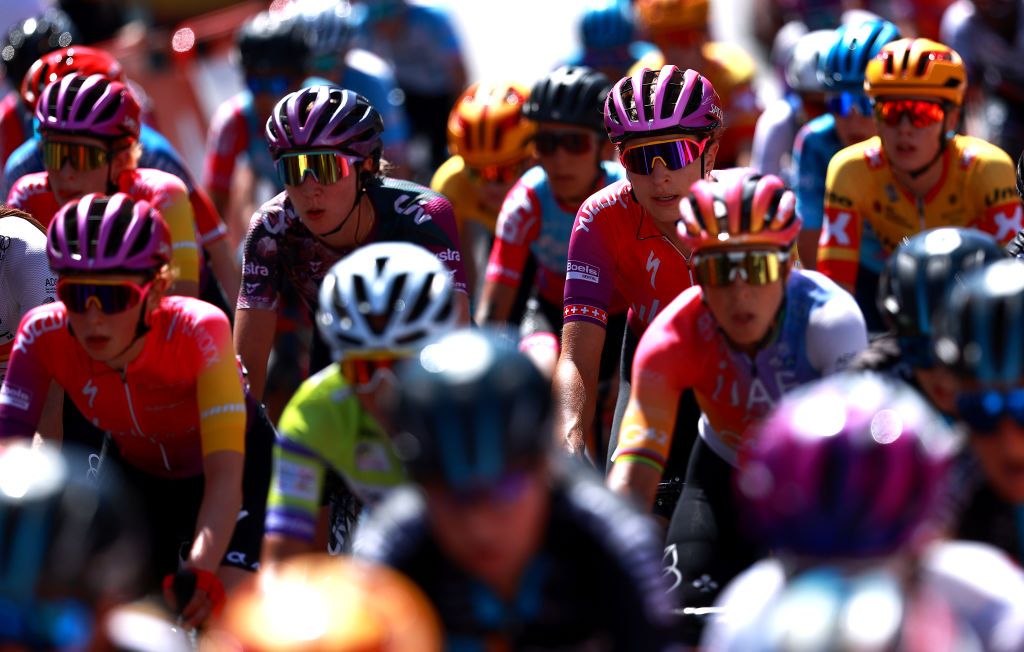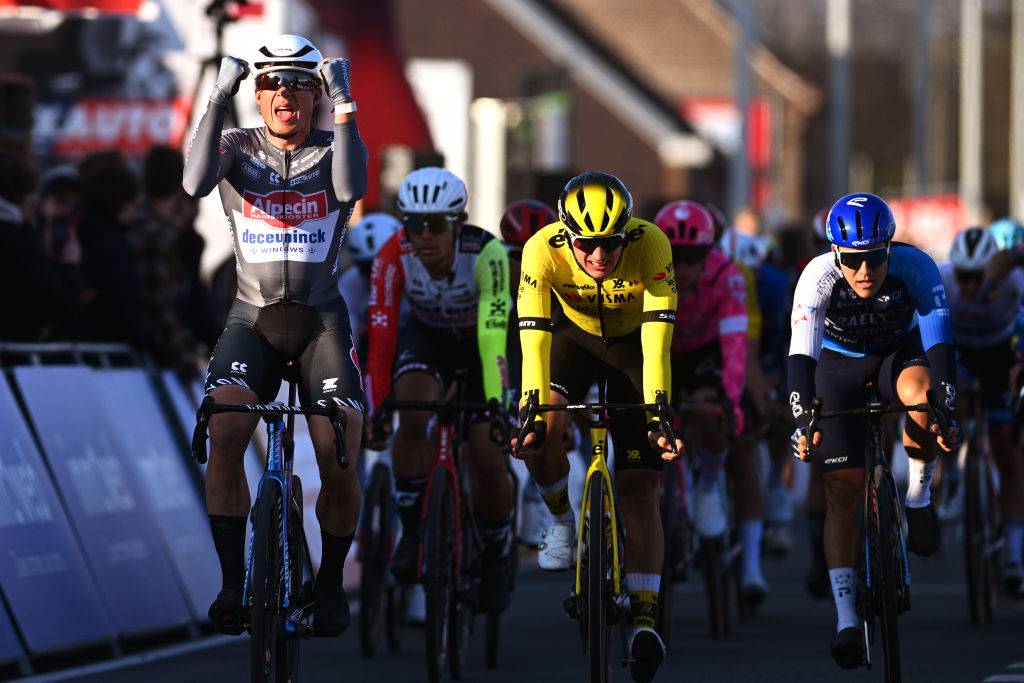Nearly half of women pros still can't make ends meet with income from racing
The Cyclists' Alliance survey reveals gains but increasing wage gap between WorldTour and Continental Teams

The latest race content, interviews, features, reviews and expert buying guides, direct to your inbox!
You are now subscribed
Your newsletter sign-up was successful
The Cyclists' Alliance, the trade association that represents the interests of female cyclists, revealed in its annual survey that only 15% of female professional cyclists receive an income of over €20,000 outside of the Women's WorldTour (WWT) and almost half of the peloton - 46% - rely on supplemental income from second jobs, family support or scholarships.
"Barely half the female professional peloton can rely on cycling as their sole source of income," TCA wrote about the survey's findings.
There were even some cyclists in this year's Tour de France Femmes who received no salary but were racing against riders on WorldTour teams who earn six-figure salaries.
By contrast, 13% of WWT riders said they earned more than €100,000 per year – an increase of 11% compared to last year – and another 24% said that they earned between €60,000- €100,000 – a 17% increase.
The survey included 31 questions that covered employment and income, team support and culture, work and education, professional support, team culture, and membership of the TCA.
124 female professional cyclists completed the survey; 121 compete on the road, 22 track, 13 cyclo-cross, 8 in both mountain bike and e-sport, and 1 BMX. In addition, 44% of the respondents are from the Women's WorldTour teams.
The survey's findings are indicative of an increasing wage gap emerging in women's cycling between the Continental tier and WorldTour level, a disparity the TCA urges the UCI to consider particularly since "financial reasons remains the main reason for leaving the sport of professional cycling earlier than planned for female cyclists."
The latest race content, interviews, features, reviews and expert buying guides, direct to your inbox!
In 2021, the UCI mandated that WorldTour teams must increase their minimum salary from €15,000 in 2020, rising to €32,100 in 2023, but currently have no equivalent system for Continental teams.
As well as investigating riders' salaries, the survey gathered information about contract lengths, revealing that the number of one-year employment contracts went down by 30% year-on-year while 81% of WWT riders use agents to secure contracts, compared to 24% of Continental riders.
Despite these issues, 73% of the riders surveyed reported being very happy or happy, a 30% increase since 2021. They attributed this rise to the increasing professionalism of teams through rider-focused initiatives such as professional training camps with altitude training, media training, race analysis and tactical skill development as well as specialist staff hires such as nutritionists and mental coaches.
Still, 11% of riders surveyed said that they were unhappy or very unhappy in their team, citing poor management and being pressured into uncomfortable situations, the survey revealed.
The survey also revealed that when asked about resources and services available to them as part of their contracts many riders were unsure of what their team provides with 12% stating "I am not sure".
In addition, of those surveyed who are contract with a team affiliated with a men's team, only 25% have access to the same resources, less than half get access to only some resources and 30% do not get access to the same resources.
"Many riders to not have sufficient access to the support and resources required to perform their job as a professional cyclist," TCA wrote of the findings.
A key finding, too, was that some riders, who already earn less than a minimum wage, are also being forced to repay their teams for costs incurred on the job, with 28% being obliged to repay their team expenses which were necessary for them to do their job.
Outside team structures, the survey highlighted the need for increasing live TV coverage of races; 56% of all respondents said it was a key issue for stakeholders to focus on, particularly following the success of the Tour de France Femmes that drew 20 million viewers in France alone.
Issy Ronald has just graduated from the London School of Economics where she studied for an undergraduate and masters degree in History and International Relations. Since doing an internship at Procycling magazine, she has written reports for races like the Tour of Britain, Bretagne Classic and World Championships, as well as news items, recaps of the general classification at the Grand Tours and some features for Cyclingnews. Away from cycling, she enjoys reading, attempting to bake, going to the theatre and watching a probably unhealthy amount of live sport.
- Kirsten FrattiniEditor
